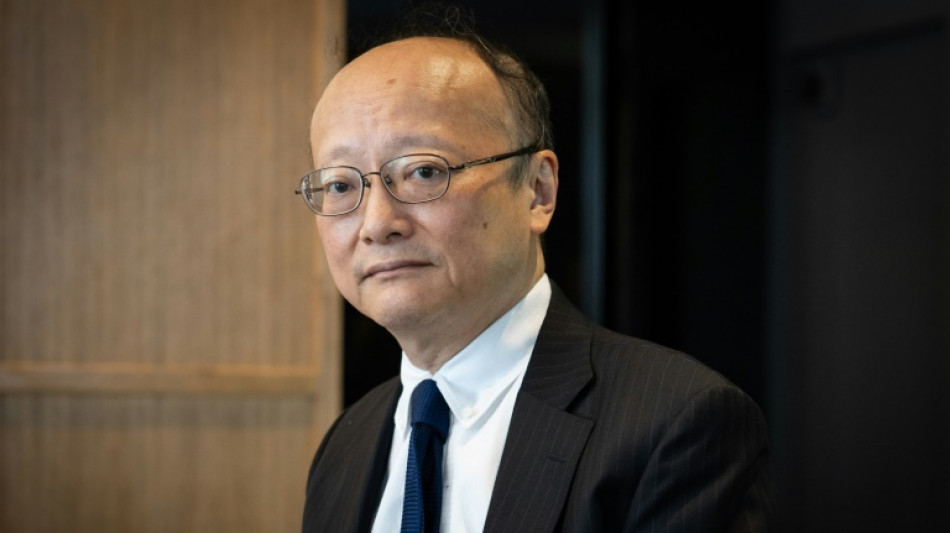
-
 Frenchman denies killing wife in case that captivated France
Frenchman denies killing wife in case that captivated France
-
Bavuma out of Test series in Pakistan as De Kock back for ODIs

-
 Bavuma out of Test series as De Kock back for white-ball games
Bavuma out of Test series as De Kock back for white-ball games
-
French town halls defy government warning to fly Palestinian flags

-
 French zoo returns poorly panda and partner to China
French zoo returns poorly panda and partner to China
-
IEA feels the heat as Washington pushes pro-oil agenda

-
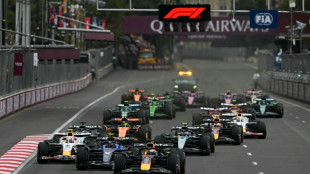 Three things we learned from the Azerbaijan Grand Prix
Three things we learned from the Azerbaijan Grand Prix
-
Spanish bank BBVA raises offer for rival Sabadell

-
 Tens of thousands join pro-Palestinian demos, strikes in Italy
Tens of thousands join pro-Palestinian demos, strikes in Italy
-
Man City's Silva fumes over lack of respect in schedule row

-
 Israeli army operations stir fears in Syria's Quneitra
Israeli army operations stir fears in Syria's Quneitra
-
Chelsea's Palmer likely to avoid groin surgery: Maresca

-
 Horner formally leaves Red Bull after agreeing exit from F1 team
Horner formally leaves Red Bull after agreeing exit from F1 team
-
Newcastle sign Wales full-back Williams

-
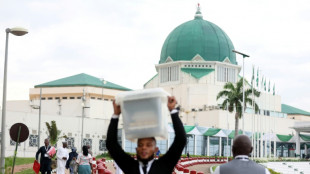 Nigerian women protest for reserved seats in parliament
Nigerian women protest for reserved seats in parliament
-
Stocks mixed ahead of week's key US inflation data

-
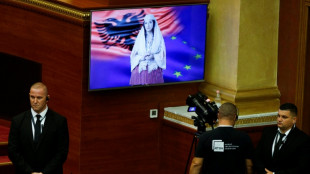 Experts question Albania's AI-generated minister
Experts question Albania's AI-generated minister
-
Philippine protest arrests leave parents seeking answers
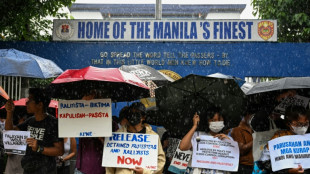
-
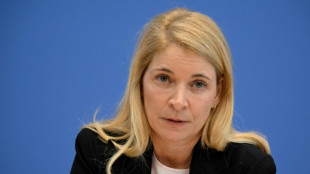 New boss of Germany's crisis-hit railways vows 'new start'
New boss of Germany's crisis-hit railways vows 'new start'
-
Just not cricket: how India-Pakistan tensions spill onto the pitch

-
 PSG star Dembele expected to beat Yamal to Ballon d'Or
PSG star Dembele expected to beat Yamal to Ballon d'Or
-
Burberry returns to London's top shares index

-
 French town halls fly Palestinian flag despite government warning
French town halls fly Palestinian flag despite government warning
-
China prepares to evacuate 400,000 as super typhoon makes landfall in Philippines
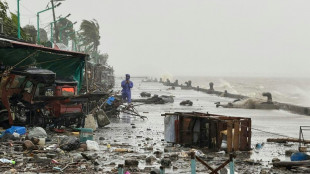
-
 Japan PM candidate vows 'Nordic' gender balance
Japan PM candidate vows 'Nordic' gender balance
-
Climate goals and fossil fuel plans don't add up, experts say
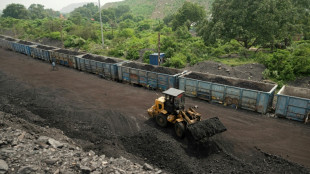
-
 Amazon faces US trial over alleged Prime subscription tricks
Amazon faces US trial over alleged Prime subscription tricks
-
Google faces court battle over breakup of ad tech business

-
 France, others to recognize Palestinian state as UN week gets underway
France, others to recognize Palestinian state as UN week gets underway
-
Burkina's LGBTQ community fears 'witch hunt' after anti-gay law

-
 Milan Fashion Week to mourn Armani, welcome new stars
Milan Fashion Week to mourn Armani, welcome new stars
-
LAFC's Bouanga makes MLS history with hat-trick in Salt Lake win

-
 Eagles top Rams in NFL thriller as Chiefs grab first win
Eagles top Rams in NFL thriller as Chiefs grab first win
-
Thousands evacuated in Philippines as super typhoon nears land
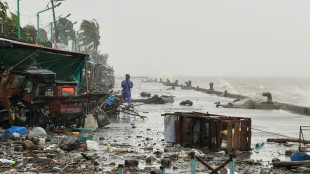
-
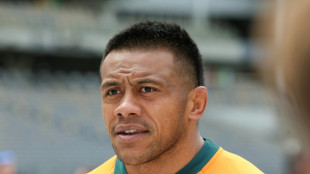 Alaalatoa, Wallabies fired up to end All Blacks unbeaten Eden Park run
Alaalatoa, Wallabies fired up to end All Blacks unbeaten Eden Park run
-
Arrest tally grows after Philippine anti-corruption protest clashes

-
 Fritz downs Zverev to seal Team World Laver Cup win over Europe
Fritz downs Zverev to seal Team World Laver Cup win over Europe
-
Asian markets mixed as traders take stock after Fed-fuelled rally

-
 France's renowned Pompidou Centre shuts for 5-year refit
France's renowned Pompidou Centre shuts for 5-year refit
-
North Korea's Kim open to US talks, has 'fond memories' of Trump
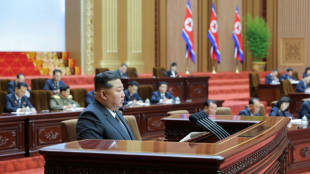
-
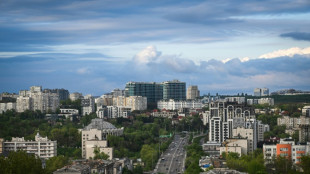 Moldova's powerful diaspora courted in battle between Moscow and West
Moldova's powerful diaspora courted in battle between Moscow and West
-
Moldovan voters face crossroads between Russia and EU
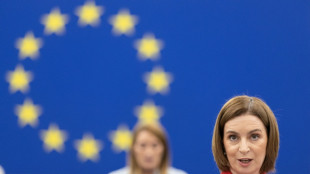
-
 Kenyan athletes shine in Tokyo, but anti-doping efforts remain in the dark
Kenyan athletes shine in Tokyo, but anti-doping efforts remain in the dark
-
In Sudan, 'never again' has proved untrue: UNHCR chief
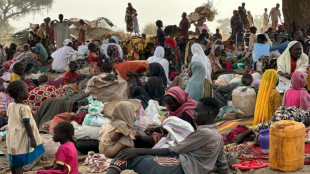
-
 Trump says Murdochs interested in investing in TikTok's US arm
Trump says Murdochs interested in investing in TikTok's US arm
-
'No amnesty!' Brazilians protest against bid to pardon Bolsonaro

-
 Tens of thousands rally against Hungary PM Orban's media spending
Tens of thousands rally against Hungary PM Orban's media spending
-
Resurgent Blue Jays clinch MLB playoff berth

-
 Barca ease to Getafe win, Atletico held after missed penalty
Barca ease to Getafe win, Atletico held after missed penalty
-
Venezuela's Maduro says he wants dialogue with US
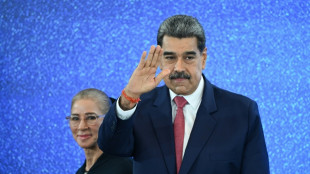

ADB acting on US concerns over China, bank chief tells AFP
The Asian Development Bank was trying "very hard" to accommodate US concerns over lending to China, the bank's president told AFP, including by slashing loans to the world's second-largest economy.
Global development institutions are in Spain this week for a UN summit on financial aid for the world's poorest overshadowed by Washington's gutting of poverty and climate change programs.
The United States is a major donor to multilateral banks like the ABD, but Washington's future commitment to development lenders has been in doubt since the election of President Donald Trump.
In April, US Treasury Secretary Scott Bessent urged ADB President Masato Kanda "to take concrete steps" to end loans to rival China.
Kanda said lending to Beijing was "radically decreasing" and had already halved from $2 billion in 2020 to $1 billion in 2024.
"We are already on... a declining trajectory," the Japanese head of the Manila-based lender told AFP in an interview in Paris on Friday.
"Probably -- I can't promise -- but probably this declining trajectory will be continued, and someday may be zero," he added, stressing that such a decision would ultimately be decided by the bank's shareholders and board of directors.
Kanda said US demands that ADB curtail financing for China were hardly new and probably "one of the very few agendas across the aisle in the US Congress".
"Even under the Biden administration, it was the same request," Kanda said, referring to the last administration under President Joe Biden.
The United States and Japan are the largest shareholders of ADB, which helps bankroll projects in the Asia-Pacific region that lift living standards and promote economic growth.
China, India and Australia are also significant members.
- 'Universal' challenge -
Kanda said ADB's efforts to raise lending without asking more of taxpayers in donor countries "was very much appreciated by the United States and others".
"I try very hard to accommodate the issues of the United States," he said.
Kanda is among thousands this week attending the International Conference on Financing for Development in Seville, the biggest event in a decade on the crisis-hit aid sector.
The United States in snubbing the UN-sponsored conference, underlining the erosion of global cooperation on combating hunger, disease and climate change.
Trump's cuts have come under particular scrutiny but Germany, Britain and France have also slashed foreign aid while boosting spending in areas such as defence.
With budgets in doubt, multilateral development banks have come under particular pressure to step up financing for projects that tackle global warming and prepare poorer countries for climate disaster.
Last year, rich countries committed $300 billion annually by 2035 for climate finance in the developing world -- well short of the $1.3 trillion that experts say is needed.
Last year, the ADB committed to channelling half its annual lending to climate-related projects by 2030 and Kanda said it was likely this would grow in time.
The bank was navigating a level of global uncertainty not seen in many decades but it was critical to consider the most vulnerable on the rocky road ahead, he added.
"This is not just a short-term phenomenon of one country, but it is rather universal," he said.
"This is a really difficult situation. And as long as we don't improve the root cause of this situation -- for instance, a more fair society -- it will not be so easy."
T.Ziegler--VB
